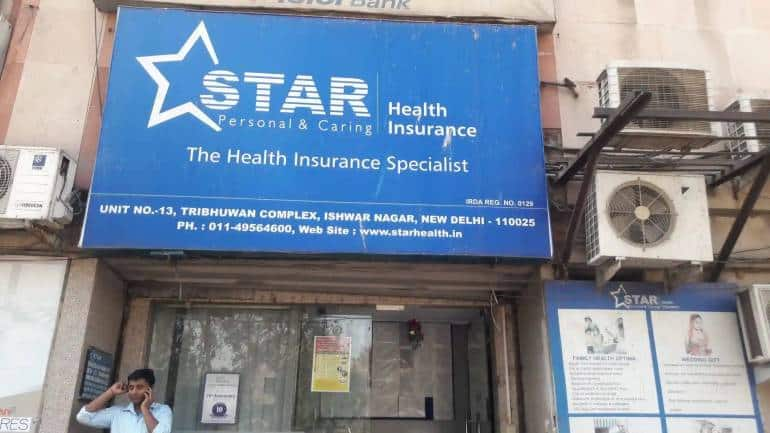Star Health tanks as Q2 earnings miss estimate: Should you buy the Jhunjhunwala stock?


Shares of Star Health Insurance lost nearly 4 percent on November 1, a day after the company reported below-estimate earnings for the September quarter.
The insurer’s net profit jumped 34 percent on-year and its gross written premium, total income also saw an on-year increase. However, the numbers failed to meet the Street expectations because of higher-than-expected claims and expense ratios.
Analysts continue to remain positive on the company, considering the long-term growth potential for the industry along with investments by Star Health in profitable channels and products.
At 9:46am, Star Health shares were trading 3.5 percent lower at Rs 559.40 on the National Stock Exchange. So far this year, the stock has fallen over 4 percent, underperforming the benchmark Nifty, which has risen 4.7 percent in this time.
Follow our market blog to catch all the live action
Jhunjhunwala-backed Star Health had taken a price revision in Family Health Optima, which will be reflected over the next 12 months, according to Motilal Oswal analysts. The company has guided Net Earned Premium (NEP) growth of 20 percent, return on equity (ROE) growth of 20 percent and a solvency ratio of 200 percent.
The solvency ratio is a measurement of how much the insurance company has in assets versus how much it owes as the total sum assured. It is one of the basic measurements to assess how financially sound the insurance company is and its overall ability to pay claims. The higher the solvency ratio, the more assets there are compared to obligations.
Should you buy, hold or sell Star Health stock?
As compared to the earlier guidance of 63-65 percent loss ratio, the Star Health management expects the claims ratio to exceed the guidance range, given the rising incidences of fever and respiratory diseases across the country. Considering the long-term growth potential for the industry, brokerage firm Motilal Oswal has reiterated a ‘buy’ rating on Star Health stock with a target price of Rs 730.
The domestic brokerage has, however, cut the EPS estimates by 13 percent and 14 percent for FY24 and FY25 to factor in higher claims and expense ratios in the first half of the current fiscal.
According to Nuvama Institutional Equities, while increased incidence of monsoon-related illnesses seems to have affected the near-term loss ratios of Star Health, they expect the full impact of recent price hikes to moderate future losses. The brokerage has a ‘buy’ call on the stock with a target price of Rs 710.
Emkay Global, however, remains bearish on the stock as it believes that Star Health is set for a prolonged navigation through rough waters, where it will struggle to drive profitable growth.
“The competitive environment in the retail health segment (on pricing and commission fronts) along with accelerated consolidation and corporatization of hospitals in India will continue to put pressure on profitability over the medium term, it said as it put a ‘sell call on the stock with a revised target price of Rs 510 per share.
Key risks
Any significant slowdown in growth, Intensifying competition resulting in loss of market share or increased loss/combined ratios; and Exit of key management personnel may be among key risks for the stock.
Any regulation flux that may further stifle easy pricing change, noted Nuvama. “Several financial investors and pre-IPO investors, who may look to exit from time to time, hold Star Health’s shares. This may result in a constant supply of shares—thereby keeping its price depressed,” it said.
Emkay Global also sees a number of challenges ahead for Star Health. The combination of higher claims frequency on account of increased concentration of older policy in the policy mix and higher claims severity will put pressure on claims ratio despite price hikes. Price hikes and tightening of underwriting processes would mean achieving volume growth to be a tough ask, it said.
Also Read | Motherson Sumi Wiring shares gain as Q2 results meet estimates, offer positive margin outlook
Additionally, continued aggression in the retail health market by unlisted players, lesser in terms of pricing and more in terms of commissions payout, would add to its difficulties. Accelerated consolidation and corporatization in the hospital industry will generally mean higher medical claims inflation in the near to medium term.
“While we trust the competency of Star Health’s management to drive to its targeted profitable growth path, we see this navigation through rough waters to be a prolonged one,” said Emkay Global in its report.
Disclaimer: The views and investment tips expressed by experts on Moneycontrol are their own and not those of the website or its management. Moneycontrol advises users to check with certified experts before taking any investment decisions.









